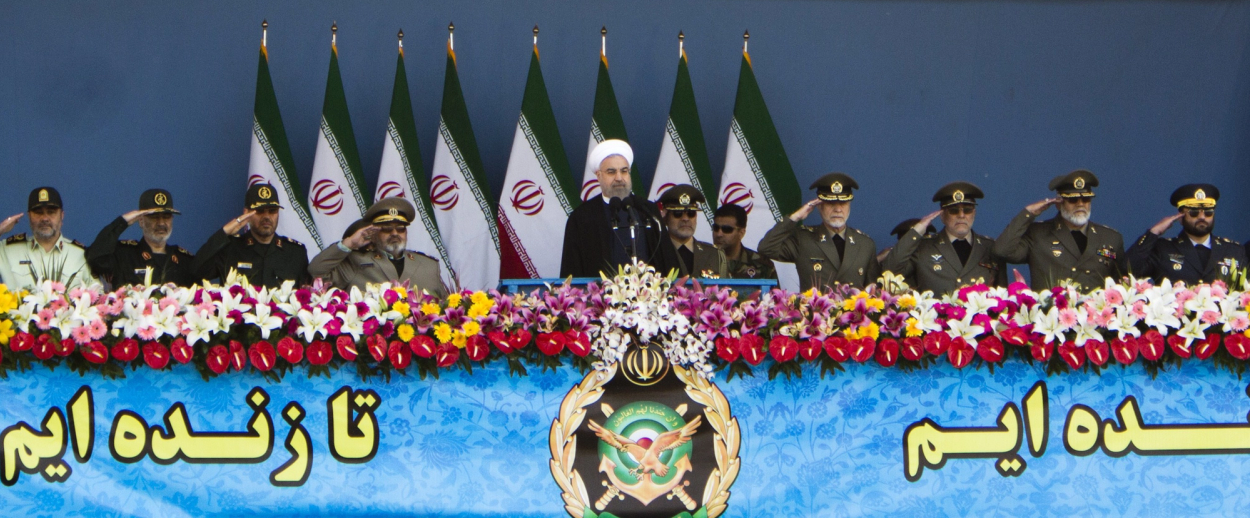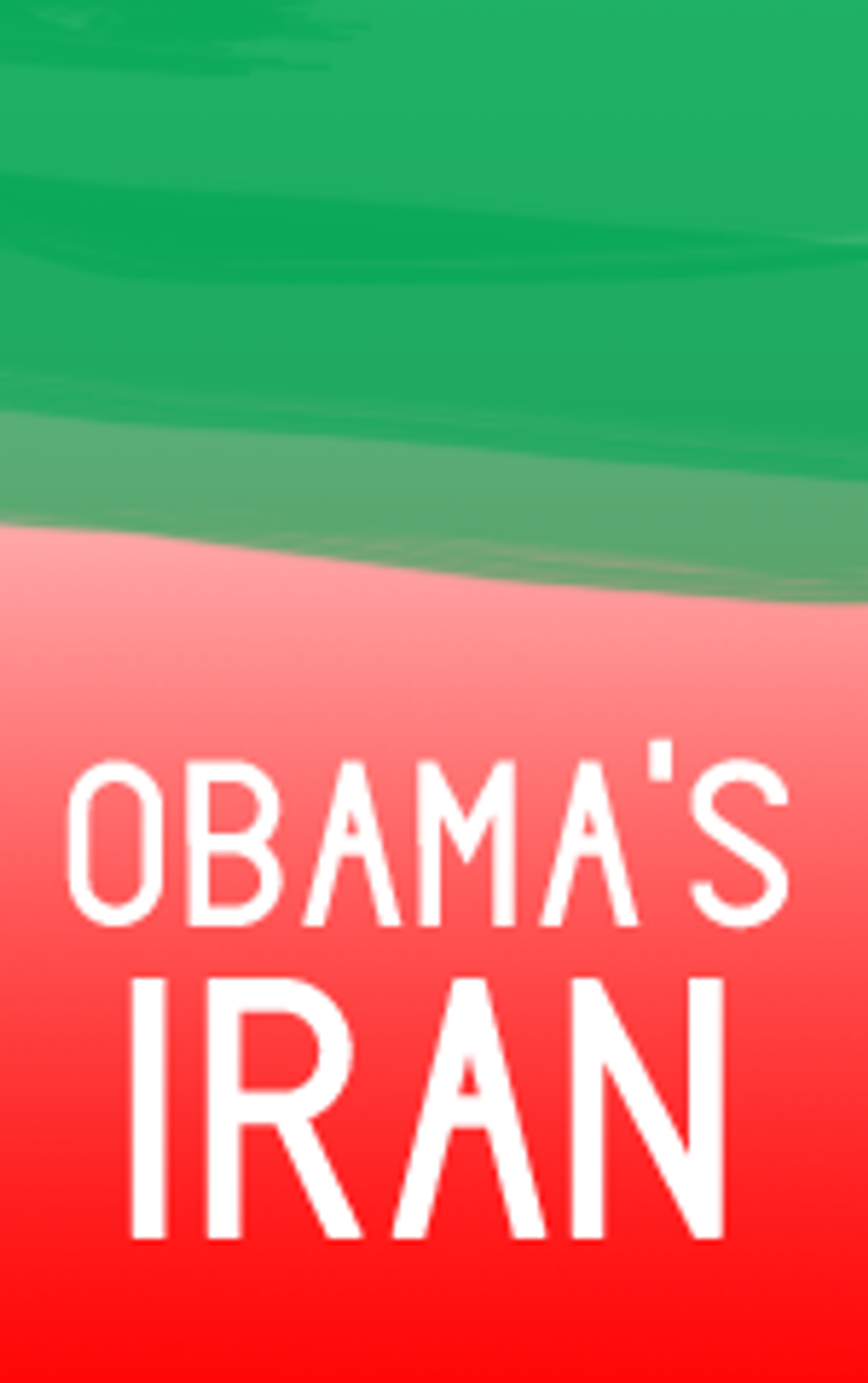What Iran Will Buy With Obama’s $50 Billion
Why the idea that economic and social pressure can keep Hezbollah in check is deeply flawed




U.S. administration officials are still defending the nuclear deal by assuring us that Iran will only use the $50 billion “signing bonus” they expect to receive on the country’s internal needs. No Iranian official has ever promised that, not even to the Iranian people who have been struggling with economic hardships. Yet the U.S. administration has presumed that Iran’s infrastructure is more significant to the regime than hegemony over Syria, Lebanon, and Iraq.
Let’s imagine a scenario where Iran decides to spend the windfall on infrastructure and on addressing the needs of the Iranian people, as Treasury Secretary Jacob J. Lew assured the world it will in an address to the Washington Institute last month. The Iranian people will surely be relieved, and the credibility of the reformists will probably increase. But most significantly, Iran will become a nation with no ambitions for regional dominance. Iran will eventually have to let go of Syria’s Assad, Hezbollah, and all their militias in the region—including those in Yemen and Iraq, because the money is needed for infrastructure and to help rebuild the country’s own economy. The mullahs will then sit down with the world powers to find a realistic political solution for Syria, and stop the bloodshed. Wonderful, isn’t it?
Unfortunately, the Obama Administration’s big hopes are unlikely to pan out, for two big reasons. One, no one has forced or will force Iran—deal or no deal—to stop its military operations in the region, so why would they? They can spend the $50 billion both internally and on their regional militias and maintain some kind of “Resistance Economy” until sanctions are lifted and investments get going. Two, Syria is too significant for Iran to just let go, as Iranian officials have declared publicly many times. Without Syria, Iran will lose its link to Hezbollah, and thereby its leverage over Lebanon and its borders with Israel. If this leverage is lost, Iran will be forced to let go of its ambitions to become a main regional player and to forget about exporting the Islamic Revolution, the hope on which the regime was founded.
With the recent gains by rebels, Iran seems to be losing in Syria if it doesn’t boost its military operations soon. A political solution that won’t guarantee Iran’s link to Lebanon through Iraq and Syria will not pass. Even if Iran and the world powers reach a compromise to divide Syria and guarantee Iran’s control of certain areas, the rebels on the ground and their regional backers will not accept it. Attempts to achieve more gains by the rebels will continue, and Iran will never be able to stop fighting. More fighting requires more money. It is that simple.
Iran’s Real Budgetary Priorities
A look at Iran’s current budgeting shows that the country’s leadership seems to be boosting its military budgets at the expense of providing services to the Iranian people. And contrary to recent assertions by President Barack Obama himself, Iran’s programs of regional subversion and terror do not come cheap. Even under sanctions, Iran has been bankrolling Hezbollah with up to $200 million a year. This budget has been recently cut by 40 percent in 2015 due to the economic crisis Iran is facing, which has been caused by sanctions and the drop in oil prices. However, this cut affected Hezbollah’s social and health services, not its military budget. Services were sacrificed for the sake of military strength.
In addition to the lack of services, salary cuts and delays in payments, reported by Newsweek in January, Hezbollah has decided to reduce the coverage of its social security by withdrawing the “Nour card” from many members and their families. The Nour Card is like a Social Security card that provides medical and other basic services to its holder in addition to major discounts in certain shops. The clear message here is that whatever money the party possesses needs to be allocated to the military. The community will have to sacrifice—as Hezbollah’s leader Hassan Nasrallah has repeatedly asked—until victory is achieved, or until the economy gets better. Earlier this year, Nasrallah reassured the Shiites that a deal between Iran and the West will make Hezbollah and its allies stronger. He did not mention the money Iran will receive for signing the deal, but his meaning was clear.

Hezbollah’s community is waiting eagerly for the money to come back, not only because of the lack of services, but mainly because the war has lasted too long. They believe that more money will certainly boost the military budget and raise Hezbollah’s winning chances in Syria.
There has also been a hike in the military budget in Iran. President Hassan Rouhani, who was supposed to have been elected by the Iranian people because of his reformist ideas and concern for people’s needs, was the one who announced last year a hike in military spending by 33.5 percent in the 2015 fiscal year, despite the “cautious, tight” budget he presented to parliament. Most of this military budget will be assigned to the elite Revolutionary Guards. For public employees, Rouhani proposed a 14 percent wage increase.
Sanctions and a drop in oil prices have cost Iran over $160 billion in oil revenues since 2012, and its GDP shrank by 9 percent. So yes, Lew is right. Iran will have to address those needs to attract investment. But what Lew misses is that Iran’s military budget, chiefly that of the revolutionary guards—the institution which has been supervising and leading Iran’s regional military operations—is far more important than domestic needs.
How Much Does Hezbollah Cost?
Hezbollah’s cut in social services to the Shiites did not apply to the fighters and their families. According to recent reports the Party of God is paying an average of $1,000 a month per fighter, depending on their rank and responsibilities. The Lebanese Shiites cost the most, followed by Iraqis, then Pakistanis and Afghanis.
The Financial Times reported last month that Hezbollah had doubled its deployment in Syria to between 6,000 and 7,000 fighters due to the regime’s manpower crisis, costing the party a bigger budget in salaries, equipment, and weaponry. But military budget is not limited to ground troops. Hezbollah’s war budget reaches a bigger structure of institutions and compensations that support its operations.
In addition to the Jihad Council that foresees the military operations and costs, there are other institutions that are still functioning, such as media, health, and social institutions. They might not provide services to the same number of beneficiaries as they used to, but they still cater to the fighters and their families. Al-Manar TV—their media arm—is still a vital propaganda tool used to keep the community rallied around Hezbollah’s war against “the takfiris.” Al-Manar’s budget alone is at least $15 million per year.
Hezbollah also operates the Jihad Construction Foundation, Jihad El Binaa, the Martyrs’ Foundation, the Foundation for the Wounded, and the Khomeini Support Committee. Hezbollah’s Martyrs’ Foundation provides financial assistance and health and social services to the families of the “martyrs.” Sources in the Southern Suburbs in Beirut told Tablet that for each “martyr,” Hezbollah pays his family between $25,000 and $45,000. The Foundation for the Wounded provides assistance to those who have been injured during combat. Other organizations include Hezbollah’s Islamic Health Unit—with more than three hospitals and 12 health centers, Hezbollah’s schools, which serve around 15,000 students, many of whom receive financial assistance and scholarships.
Of course the military budget costs the most, but these institutions all drain Hezbollah’s budget. With less than $200 million per year, Hezbollah can still manage the necessary services needed for its current operations. Imagine what it could do with even a small part of $50 billion.
Why Losing the War In Syria Is Not an Option
According to the Christian Science Monitor, Staffan de Mistura, the United Nations envoy to Syria, recently told a private gathering in Washington that Iran has been channeling as much as $35 billion a year into Syria. This figure is probably exaggerated, but the Financial Times reported that Syria has so far cost Iran around $10 billion a year. Iran’s economy can no longer handle this budget. Syria’s defense minister was recently in Tehran asking for $6 billion but got a promise of $1 billion. In compensation, Iran recently sent 15,000 of its Revolutionary Guard fighters to Syria’s coastal side, in an attempt to take back Jisr el-Shougour from the rebels and protect Hama and Damascus.
Meanwhile, Hezbollah is stretched out to very dangerous extents, and 15,000 new fighters won’t be enough to cover all the battle lines from Qalamoun to the Alawite coast. These fighters will have to protect the status quo on the ground, until the end of the month when Iran gets its bonus. Then, more Shiite fighters will be brought in from all over the Middle East and Asia, and Hezbollah will be able to breathe again.
Hezbollah will not go back to Lebanon as long as Iran’s war is raging on, but it will also not let go of Lebanon and its Shiite support base. To preserve this base, Hezbollah will have to go back to providing services to the Shiites, not only to Hezbollah’s fighters and members. Otherwise, discontent will grow.
Hezbollah desperately needs to revive its “provider” role so that it stays the guardian of the community, who both protects and provides. Without this role, the Party of God, and eventually Iran, will lose the Shiites and eventually the tools to fight for dominance in the region.
When Iran’s finances improve, its services to its people and the Shiites in Lebanon will improve—but not at the expense of the military operations and regional goals. Obama’s $50 billion check to Iran will make sure of that.
***
Like this article? Sign up for our Daily Digest to get Tablet Magazine’s new content in your inbox each morning.
Hanin Ghaddar is a Friedmann Visiting Fellow at the Washington Institute for the Near East Policy. Her Twitter feed is @haningdr.